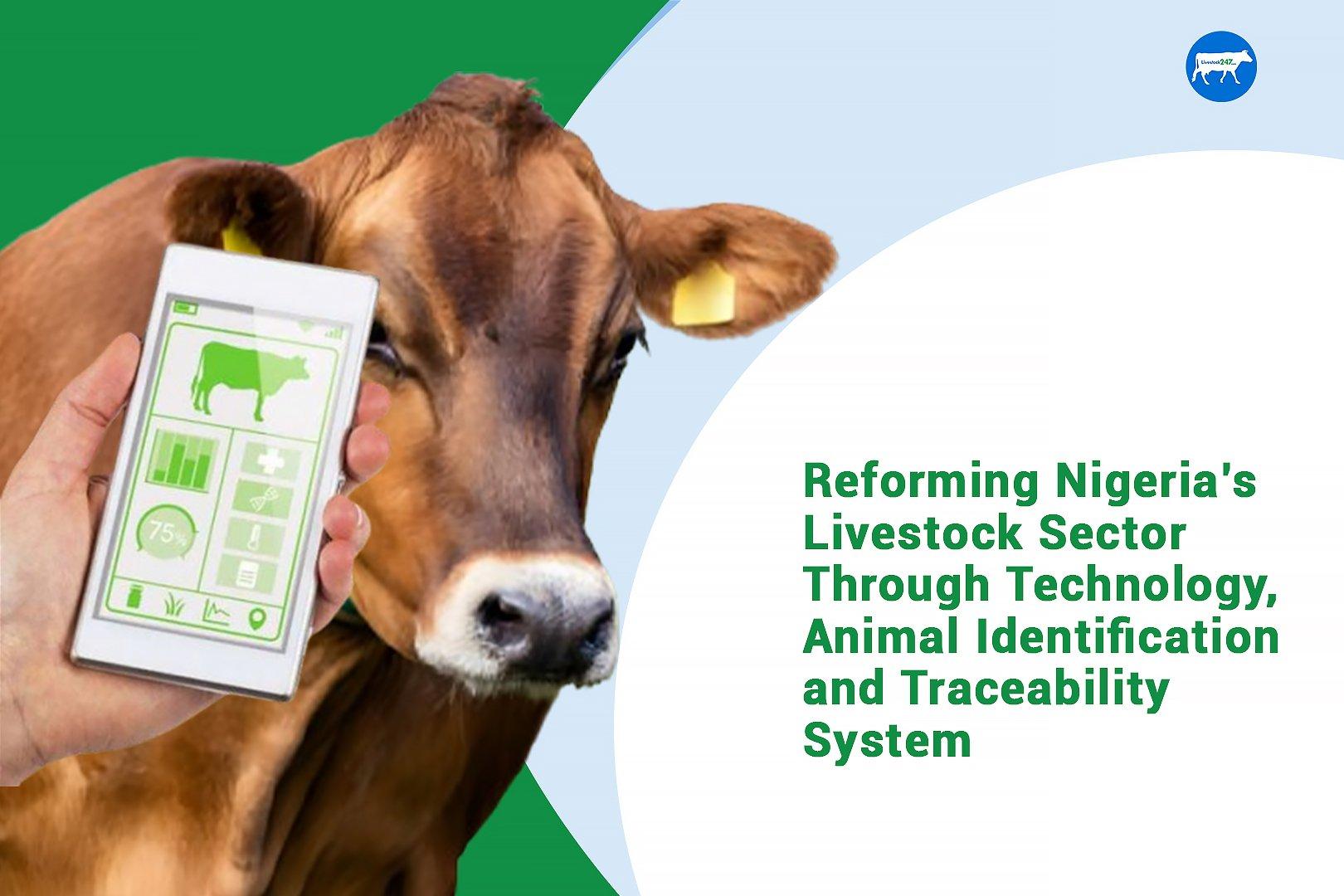Livestock247 - Reforming Nigeria’s Livestock Sector through Technology, Animal Identification and Traceability Systems
With a population exceeding 200 million and a rising demand for protein-rich diets, Nigeria has the capacity to become a global livestock powerhouse.

Nigeria’s livestock sector holds immense untapped potential, with over 20 million cows and millions of sheep, goats, and poultry contributing to a vibrant agricultural ecosystem. Yet, despite this wealth of resources, the country imports over 90% of its meat and milk products, underscoring inefficiencies that have stifled its growth and competitiveness.
With a population exceeding 200 million and a rising demand for protein-rich diets, Nigeria has the capacity to become a global livestock powerhouse. However, to unlock this potential, a systematic approach leveraging technology, particularly animal identification and traceability, is critical.
Challenges in the Livestock Sector
- Disease Control: Inadequate systems for monitoring and addressing livestock health result in outbreaks that devastate production.
- Market Access: Limited adoption of traceability standards excludes Nigeria from lucrative global export markets.
- Cattle Rustling and Insecurity: The absence of animal identification systems exacerbates theft and farmer-herder conflicts.
These challenges have hindered the sector’s contribution to the economy, food security, and the well-being of millions of livestock-dependent households.
The Role of Technology, Animal Identification, and Traceability
The implementation of animal identification and traceability systems is a game-changer for Nigeria’s livestock sector. These tools enable:
- Enhanced Animal Health Management: By tracking livestock health records, farmers can streamline vaccination schedules, reduce disease outbreaks, and improve productivity.
- Export Readiness: Traceability aligns Nigeria’s livestock products with global standards, unlocking access to international markets and reducing reliance on imports.
- Improved Security: Unique animal identification systems help combat cattle rustling and improve accountability in the value chain.
- Data-Driven Decision-Making: Technology empowers stakeholders with actionable insights to optimize production, manage resources, and address inefficiencies.
A Boost from the Ministry of Livestock Development
The establishment of the Federal Ministry of Livestock Development marks a significant milestone in advancing Nigeria’s livestock sector. This dedicated ministry brings renewed focus on large-scale livestock production, enabling the country to address systemic challenges with innovative solutions.
By working in tandem with the private sector and technology platforms like Livestock247, the ministry can enforce traceability as a standard, ensuring that Nigeria’s livestock products meet the highest safety and quality benchmarks.
Technology-Driven Solutions: The Livestock247 Approach
At Livestock247, we are committed to transforming the livestock sector through innovation and collaboration. Our platform offers:
- Veterinary Services: Ensuring the health and safety of livestock.
- Animal Traceability Systems: Tracking livestock from farm to fork, ensuring accountability and quality.
- Marketplace Integration: Connecting farmers with buyers to create a transparent and efficient value chain.
The Future of Nigeria’s Livestock Sector
With the proper implementation of technology, animal identification, and traceability systems, Nigeria is well-positioned to become a competitive player in the global livestock market. The combination of government support, private sector innovation, and tech adoption will drive economic growth, create jobs, and ensure food security for generations to come.
As the country looks to the future, the question is no longer whether the livestock sector can rise to meet its potential—but how quickly it can get there. By leveraging these tools and resources, Nigeria can transform its livestock industry into a robust, sustainable pillar of its economy.
Admin
Livestock247 Digital Marketing Unit
No comments yet. Login to start a new discussion Start a new discussion